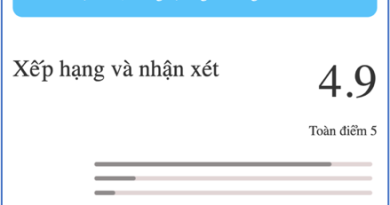Iron Tiger’s SysUpdate Reappears, Adds Linux Targeting


The persistence is ensured by copying a script similarly named as the current filename to the /usr/lib/systemd/system/ directory, and creating a symlink to this file in the /etc/ystem/system/multi-user.target.wants/ directory. Thus, this method only works if the current process has root privileges. The content of the script is:
[Unit]
Description=xxx
[Service]
Type=forking
ExecStart=<path to current file> -x
ExecStop=/usr/bin/id
[Install]
WantedBy=multi-user.target
After running the code dependent on the parameters, if the operator has not chosen a GUID with the “-f” parameter, the malware generates a random GUID and writes it to a file similarly named as the current file, with a “d” appended to it. Then, the malware retrieves information on the compromised computer and sends it to the C&C.
The following information is sent to the C&C, encrypted with a hardcoded key and DES CBC algorithm:
- GUID
- Host name
- Username
- Local IP address and port used to send the request
- Current PID
- Kernel version and machine architecture
- Current file path
- Boolean (0 if it was launched with exactly one parameter, 1 otherwise)
For the DNS C&C communication version, the malware retrieves the configured DNS server by reading the content of the /etc/resolv.conf file, or uses the DNS server operated by Google at IP address 8.8.8.8.
In 2022, we already noticed that this threat actor was interested in platforms other than Windows, with the rshell malware family running on Linux and Mac OS. For these reasons, we would not be surprised to see SysUpdate samples for the Mac OS platform in the future. Interestingly, most of the Linux samples we found used the new DNS tunneling feature we detailed in Figure 2, while only one of the Windows’ samples used it.
Certificate compromise
Another interesting part of this campaign is the fact that some of the malicious files are signed with a certificate with the following signer: “Permyakov Ivan Yurievich IP”. Looking for that name in search engines brings results from the official VMProtect website. The email address linked to the Authenticode certificate also links to that domain name. VMProtect is a commercial software intended to make analysis of code extremely difficult by implementing a custom virtual machine with non-standard architecture. The software has been used by multiple APT and cybercrime groups in the past to obfuscate their malware.
When searching on malware repositories for other files signed by the same certificate, we find multiple files named “VMProtectDemo.exe”, “VMProtect.exe”, or “VMProtect_Con.exe”, which suggests that an official demo version of VMProtect is also signed by this certificate. It appears that the threat actor managed to retrieve the private key allowing him to sign malicious code. As of this writing, the certificate is now revoked.
Using stolen certificates to sign malicious code is a common practice for this threat actor, as we already highlighted in 2015 and in all our recent investigations. Interestingly, the threat actor not only signed some of its malicious executables with the stolen certificate, but also used VMProtect to obfuscate one of them.
In late January 2023, a Redline stealer sample (detected by Trend Micro as TrojanSpy.Win32.REDLINE.YXDA1Z, SHA256: e24b29a1df287fe947018c33590a0b443d6967944b281b70fba7ea6556d00109) signed by the same certificate was uploaded. We do not believe that the stealer is linked to Iron Tiger, considering that the network infrastructure is different, and previous reports document the malware’s goals to be centered on committing cybercrime than data theft. This could mean other users managed to extract the same private key from the VMProtect demo version, or it was sold in the underground to different groups, Iron Tiger among them.
Infection vector
We did not find an infection vector. However, we noticed that one of the executables packed with VMProtect and signed with the stolen certificate was named “youdu_client_211.9.194.exe”. Youdu is the name of a Chinese instant messaging application aimed for use of enterprise customers. Its website mentions multiple customers in many industries, some of them in critical sectors such as government, energy, healthcare, or banking. But they also have other customers in industries such as gaming, IT, media, construction, and retail, apparently all located inside China.
The properties of the malicious file also match the usual Youdu version numbering. However, the legitimate files are signed with a “Xinda.im” certificate instead of the stolen VMProtect certificate.
Read More HERE



